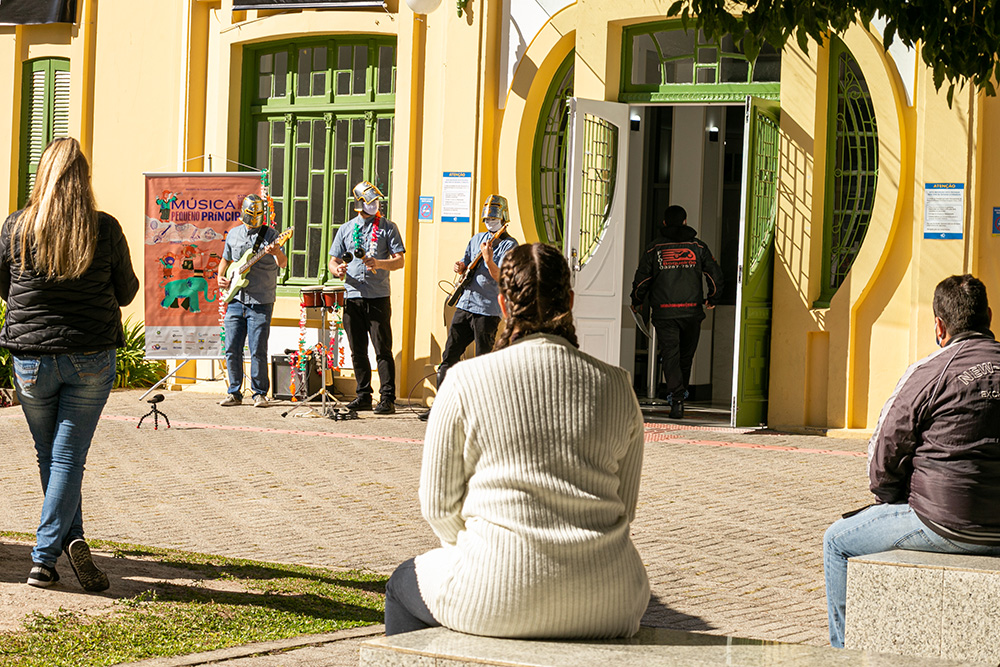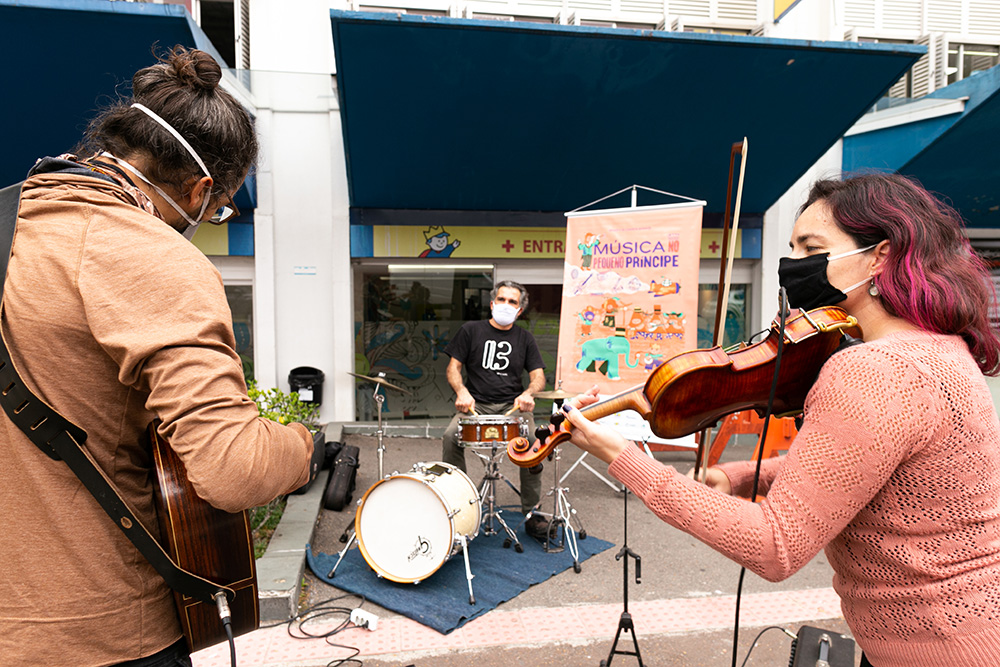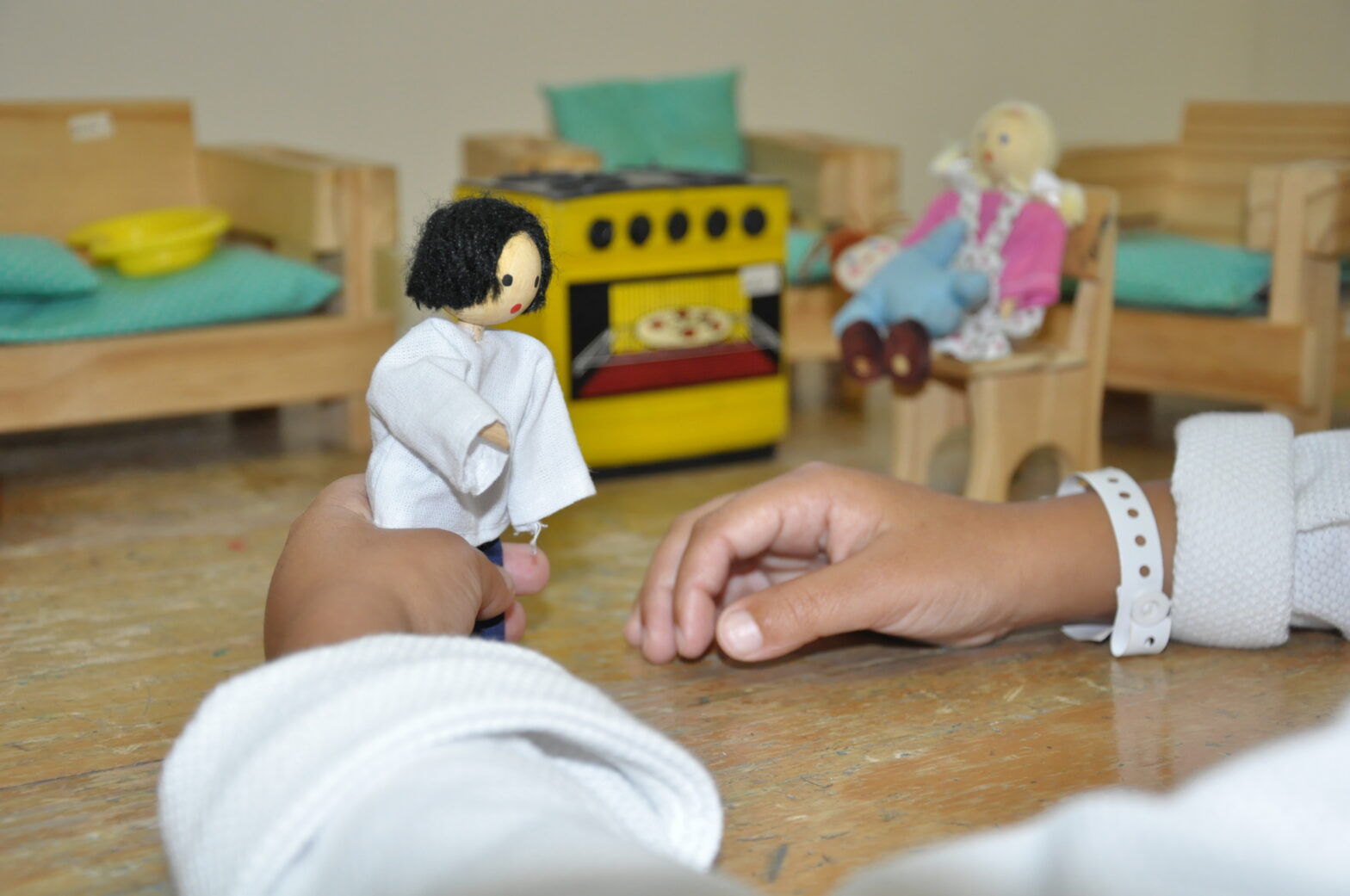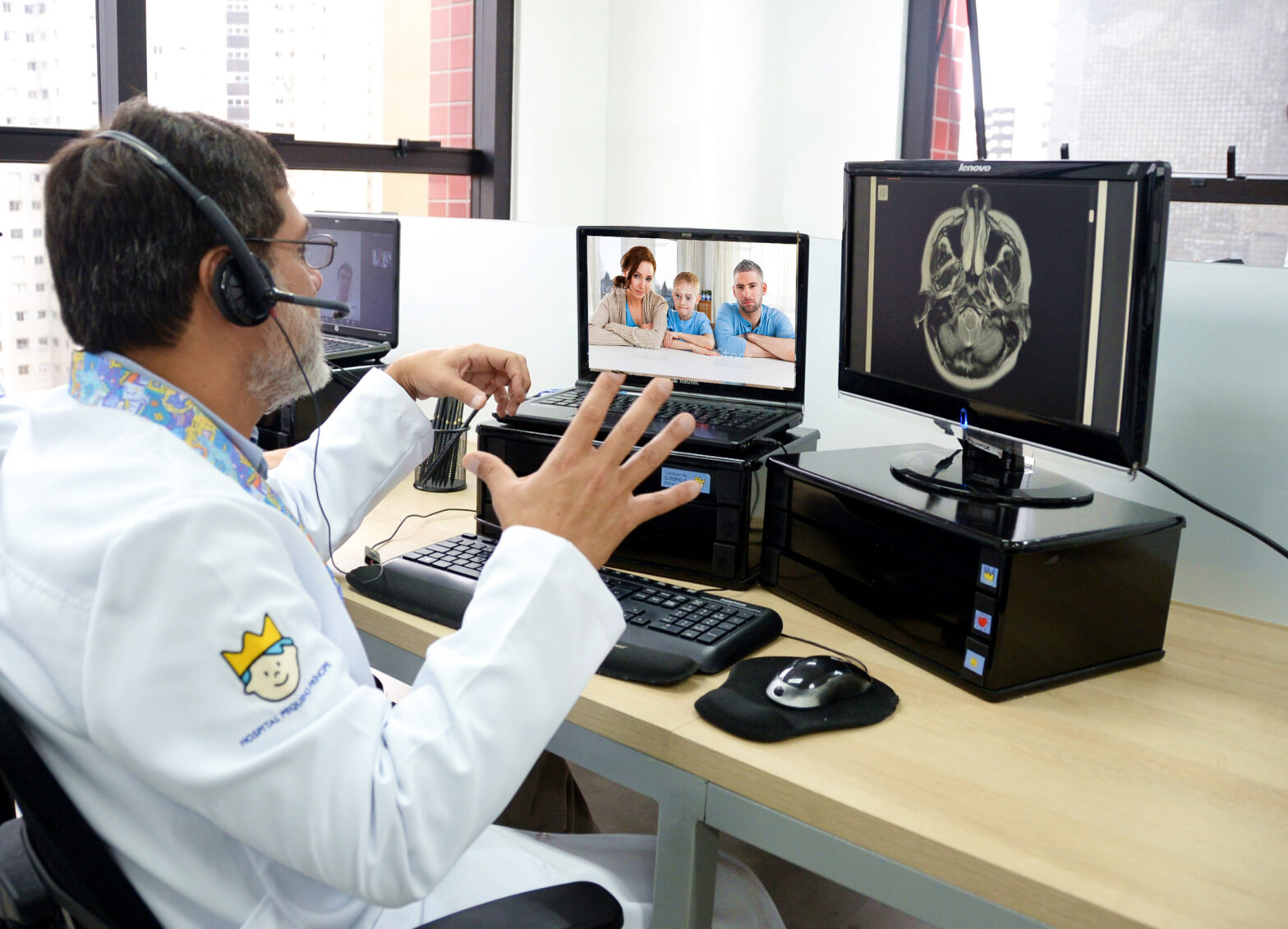Children and adolescents cannot be left without education and culture
Initiatives adapt to the social distancing rules imposed by the pandemic and migrate to the virtual environment
The coronavirus pandemic has affected a fundamental point in the execution of the educational and cultural actions carried out at the Pequeno Príncipe: the presence. In order to reduce the number of people circulating inside the Hospital – with the potential of contaminating the patients, their families and collaborators –, the face-to-face activities of education and culture have been temporarily suspended. “But in a moment of fragility like this, bringing art and culture to the institution has become even more indispensable. Therefore, we adapted our activities in many ways: videos, printed materials, and podcasts, among other formats, became a way to be together, even with the social distancing,” explains the coordinator of the Education and Culture Department, Cláudio Teixeira.

In the case of projects enabled by the Culture Incentive Law, the Special Secretariat of Culture extended the execution of all active initiatives, also publishing a normative instruction that made it possible to readjust the execution of the projects to the current reality. The teams involved with the cultural projects started, then, to look for new ways of reaching the internal public of the Pequeno Príncipe Hospital, respecting the safety protocols that the moment demands.
This way, many presentations have started to be done, for instance, on the Hospital’s sidewalks, so that the children and adolescents could watch them from the windows of their rooms, which is the case of the project Music at Pequeno Príncipe. Other initiatives have migrated to the online world: they have become storytelling series, as is the case of the project Una, Duna, Tena, Catena! Pipocas de Palavras Brincantes.
Education
School follow up also suffered the impacts of the pandemic. The teachers have also had to work remotely with the patients at Pequeno Príncipe Hospital. And faced with this new scenario, technology was essential to guarantee children and adolescents their right to education. Chat apps served to share knowledge.
“We continue to actively search for school-age patients, but without contact with the boys and girls. We approach the family member, take notes and school demands, make contact with the school of origin, pass on proposals and materials sent by the school, and deliver proposals for activities prepared by us, for example. The teachers are assisting the patients remotely, via messages apps,” says Teixeira.
One of the highlighted initiatives was the launch of a virtual Reading Club. Every week, the education and culture team made available, through this channel, a book in PDF or a storytelling. With 452 participants distributed in three groups divided by age, the Reading Club was responsible for sharing 157 works in 2020. And in 2021, the club is still active.

Pioneering
A pioneer in the recognition of education and culture as fundamental rights, Pequeno Príncipe Hospital has offered educational and cultural actions to its patients, family members, and collaborators since the end of the 1980s, transforming the hospitalization time into an opportunity for socio-cultural inclusion. “The access to education and culture are children and adolescents’ rights and the hospitalization cannot be an impediment for this to happen. Many times, the admission is long, lasting many months and even years. So, it is fundamental that the Hospital provides conditions for the patients to continue their schooling and, at the same time, that they have the opportunity to be in a culturally rich and diverse space,” defends Teixeira.
Follow the Pequeno Príncipe Hospital Education and Culture page on Facebook to keep up with the sector’s news. And on the video below, learn more about the Education and Culture Department.
More
More than 100 children victims of violence were admitted at the Pequeno Príncipe in 2020
The total number of patients assisted during the year reached 554. Throughout Life Campaign alerts society to the importance of reporting violence
Telemedicine: one more way to provide continuity of care during the pandemic
Public Health System (SUS) patients have been prioritized. Consultations are being offered in 13 specialties








